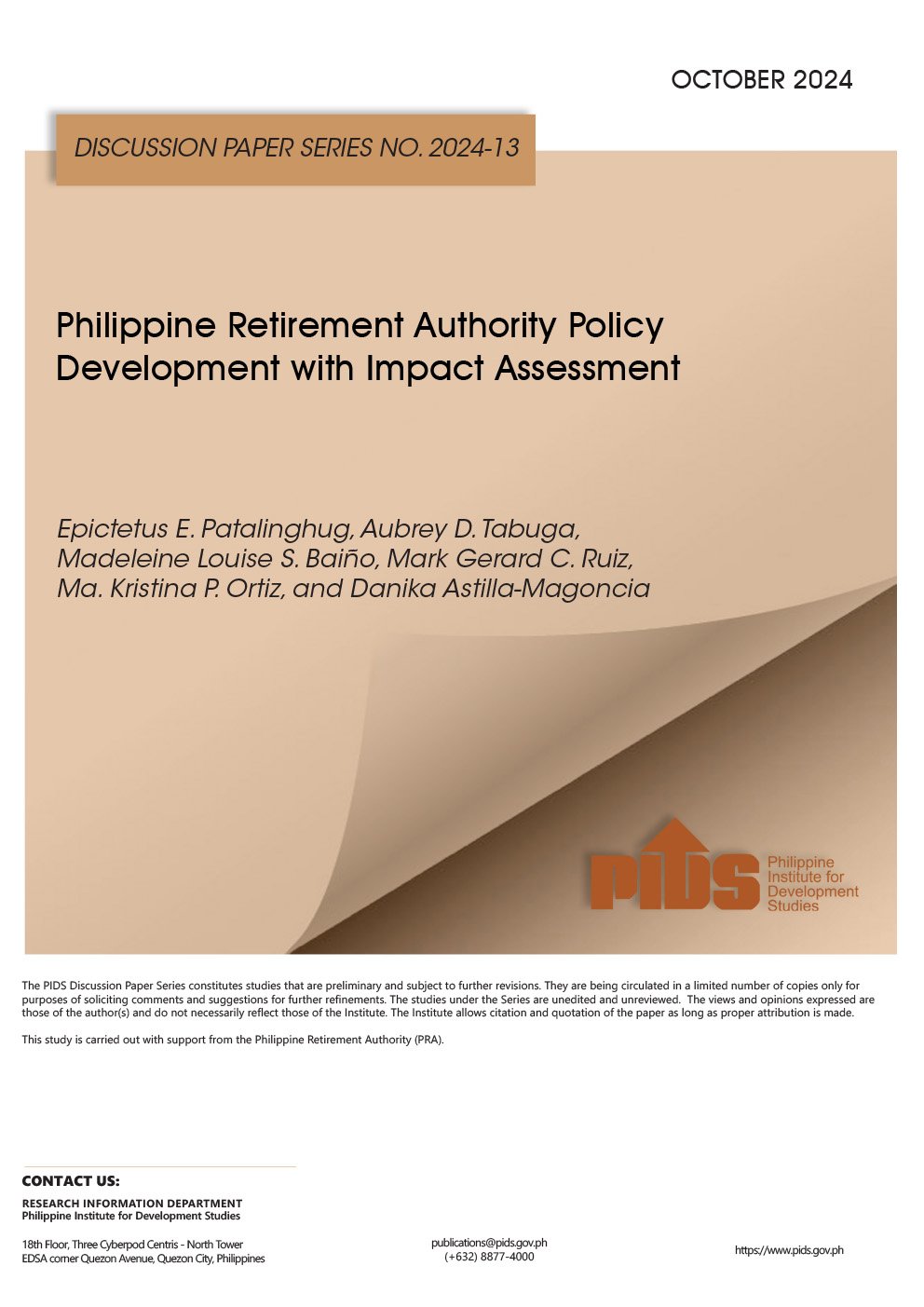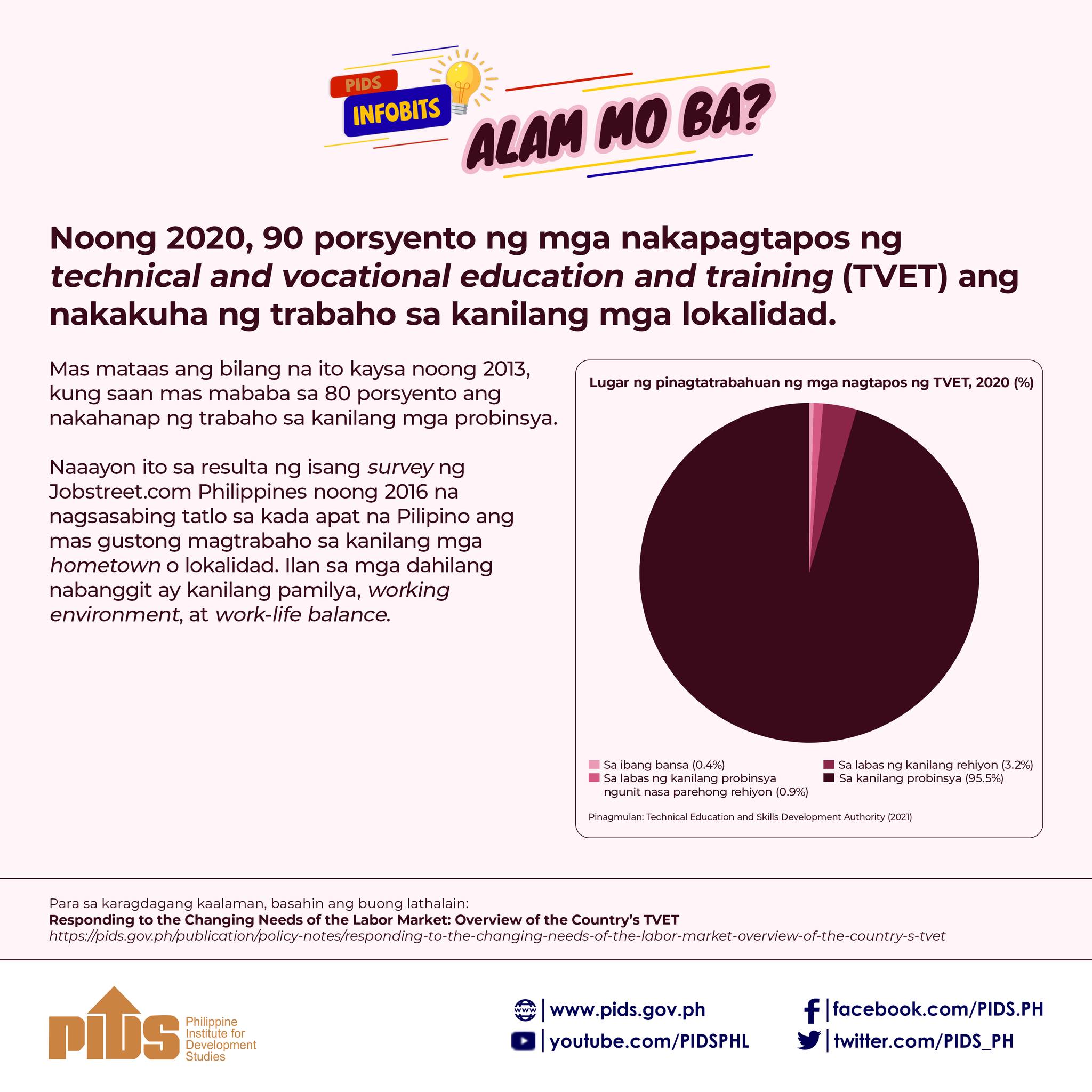LOCAL government units (LGUs) will have varying starting points when the National Government (NG) devolves some of its functions to them, the Philippine Institute for Development Studies (PIDS) said in warning against an inflexible devolution plan.
A policy of “heterogeneity in capacity” can help LGUs better prepare and acquire needed capacity improvements prior to full devolution, (which) can ensure better implementation, PIDS said in a study.
“For the national agencies, this implies the adoption of an asymmetric decentralization and asymmetrical central policies to accommodate inherent differences across LGU needs and capacities,” it added.
There is also a lack of a “standardized and comprehensive database” for public services and programs due to devolution.
“The collection of a comprehensive list of baseline indicators, especially at the LGU level, can facilitate a proper monitoring and evaluation of the devolution agenda. The institutionalization of quality data collection and monitoring within the LGUs can aid in the evaluation of decentralization impacts over the long run,” it added.
The think tank said the government should also establish a baseline of current functions, services and capacities of government units.
“Hence, any further examination of the current state, capacities and needs of LGUs in relation to the Mandanas devolution transition must be supported by primary data collection of baseline indicators,” it added, referring to the Supreme Court ruling that granted LGUs a larger share of NG income, which led the NG to shed functions in favor of local governments.
It said an evaluation is required of LGU administrative and fiscal capacity, the current quality of existing public services, and baseline outcome indicators at the provincial, city and municipal levels.
PIDS cited a need for capacity development, with an emphasis on additional manpower requirements, training and technical assistance, and orientations from the NG.
“All LGUs also express the need to develop a monitoring and evaluation tool for the devolved functions… stressing the need for collection of data for evaluation,” it added.
The government is looking into delaying the devolution timeline, which was set to be completed by 2024 under Executive Order No. 138.












